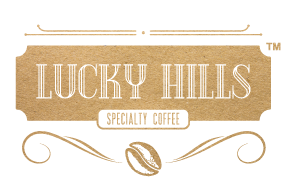Buying specialty coffee for businesses, whether it’s a hotel, cafe, restaurant, or even an office, can be quite an adventure if you lack experience. It requires researching much more than just the costs!
In this scenario, it is essential to investigate all aspects of the process in detail, from cultivation to roasting, including harvesting, transportation, and consistency and quality analysis of the beans in every delivery. These practices are fundamental to ensuring the excellence of the final product.
When a buyer finds the ideal specialty coffee for their establishment, there is a visible increase in customer satisfaction, reaching exceptionally high levels.
To assist you in deciding where to buy specialty coffee, we have developed this guide. Enjoy the read!
Step-by-Step Guide to Buying Specialty Coffee for Your Business
Each buyer has their preferences, and each business has its particularities. Nevertheless, following specific steps before deciding where to buy specialty coffee can be very valuable and help save time and money.
What are these steps? Here they are:
-
Understanding What Truly Makes a Coffee Special
Many might think that only baristas need to understand what constitutes a specialty coffee, but this responsibility also falls on buyers.
To guide you, you need to do some research on the beans and their suppliers. We recommend visiting the Specialty Coffee Association (SCA) website, downloading their protocols, and keeping this information accessible.
Additionally, stay updated here on the Lucky Hills blog for the latest news.
Read also: What to prioritize when you choose coffee for your service
-
Analyzing Prices When Buying Specialty Coffee Beans
When considering purchasing specialty coffee, analyzing prices is important, but it shouldn’t be the only decision criterion.
Start by collecting and comparing the prices of various specialty coffee options available. It is essential to evaluate not just the absolute cost of each option but also the benefits each one offers. This includes considering factors such as quality, origin, sustainability practices, and any other relevant attributes that might justify a price difference.
To facilitate financial management, set an average or maximum budget, whether monthly or weekly, for buying specialty coffees. Establishing a clear budget can help guide your choices, making it easier to filter options and make decisions more aligned with your financial capabilities and the needs of your establishment.
-
Technical Analysis of Specialty Coffee and Brand Options
Even if you’re not a coffee expert, becoming skilled in purchasing these products is crucial, especially if you want the specialty beans to meet your customers’ expectations.
For what we call a technical analysis, I suggest organizing the information in a format that facilitates the visualization and comparison of data. This can be done through a spreadsheet, a sheet of paper divided into columns, or even a chalkboard.
The elements to be recorded and compared include:
- General characteristics of specialty coffees: aroma, uniformity, sweetness, flavor, acidity, body, balance, aftertaste, and absence of defects.
- Coffee scores: Classify the coffees based on SCA ratings, where 80 to 84.99 indicates very good coffees; 85 to 89.99 for excellent coffees; and 90 to 100 for exceptional coffees.
- Bean details: Include the name, origin, price, and brand of the beans you are considering.
After this, let’s move on to the next step:
- Compare characteristics: With the listed characteristics, evaluate which specialty coffee options best meet the defined criteria and highlight the most appealing ones.
- Review scores: Check the SCA scores for each coffee and determine which ones meet or exceed the desired standards.
- Cost-benefit evaluation: Consider the price in relation to the scores and characteristics of each option. Check if the higher investment is justified by the qualities offered by the coffee.
- In-depth research on brands: Delve into the study of brands, analyzing them and identifying their unique points, such as sustainability and social impact. Remember: the most expensive brands and highest-scoring coffees don’t always align with your business’s values and vision.
A few more tips:
- Roasting process: Understand how the beans are roasted, as different roasting methods directly affect the coffee’s flavor and quality.
- Freshness of the beans: Ensure the beans have been recently roasted to guarantee their freshness, durability, and superior quality.
- Type of packaging: Analyze the type of packaging used, which is important for maintaining the quality and freshness of the beans after roasting.
-
Tasting the Specialty Coffee
After thorough research and selection, it is essential to taste the finalist specialty coffees. For an accurate evaluation, why not invite your establishment’s barista to the tasting? Together, you can analyze the nuances of each option in detail, considering aroma, flavor, and other sensory preferences.
This moment is crucial to determine which coffee stands out and best meets the desired quality and profile.
Read also: Cupping: Service excellence starts with tasting
Do we have a winner?
Now it’s time to incorporate the chosen specialty coffee into your menu. Be sure to monitor customer feedback, adjusting as necessary to optimize the experience offered.
Finally, share with your audience, both on social media and in-person, details about the specialty coffee you serve and the strengths of the brand. This not only enriches the customer experience but also strengthens your business’s identity in the market.
Discover the Specialty Coffee of Lucky Hills
Choosing Lucky Hills specialty coffee for your establishment means selecting a quality beverage that meets rigorous international standards.
Our beans are cultivated in the prestigious coffee-growing region of Carmo da Cachoeira, in southern Minas Gerais, Brazil, providing a unique sensory experience.
Moreover, local roasting on demand in Florida ensures the freshness of our coffees, and our direct trade model, which establishes a direct connection with producers without intermediaries, reflects our commitment to ethical and transparent business practices.
Choose Lucky Hills and offer your customers an exceptional experience that exemplifies quality, freshness, and aroma in every cup.
Consult our specialists to learn how to request a free sample of our specialty coffee.




